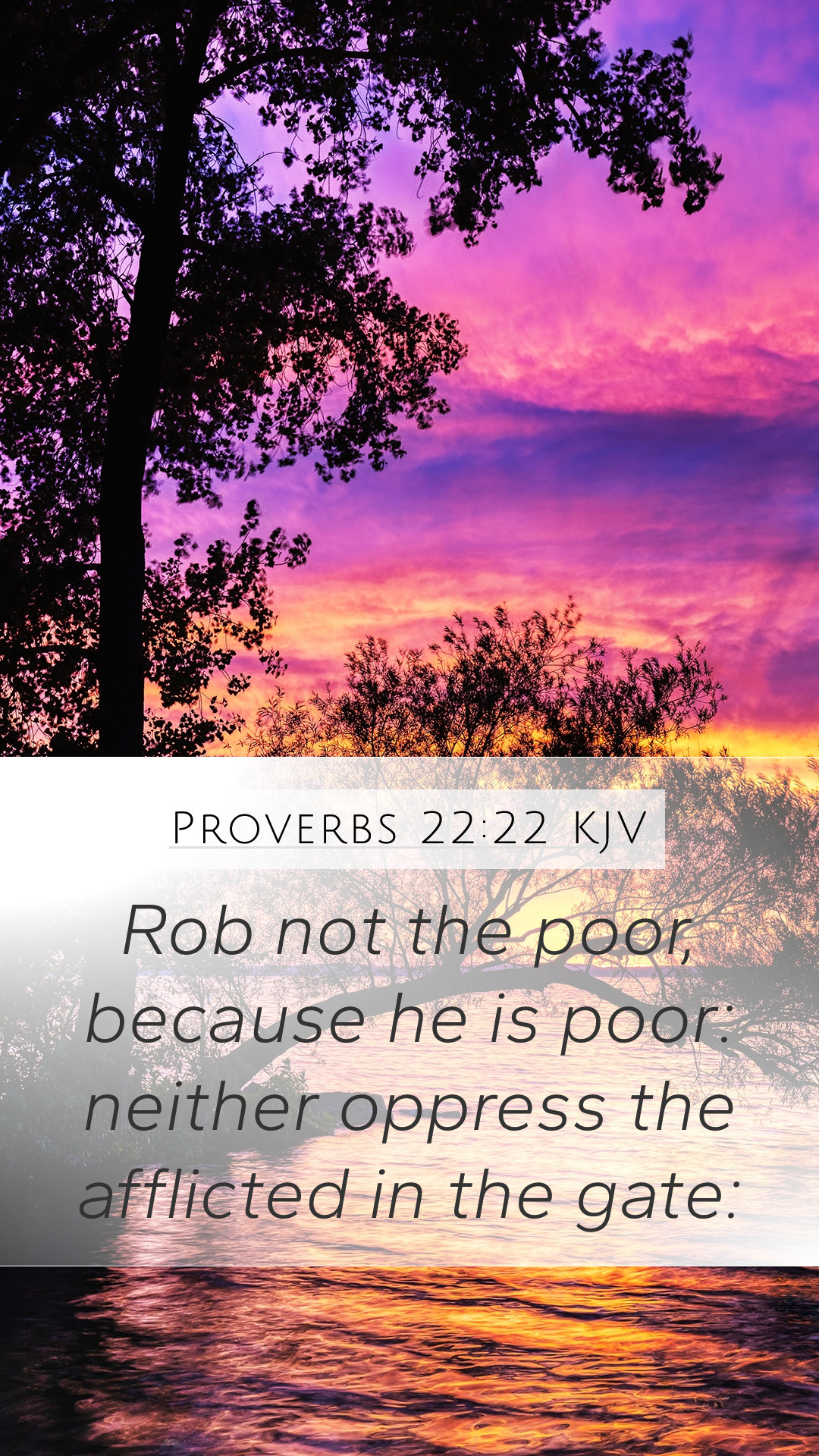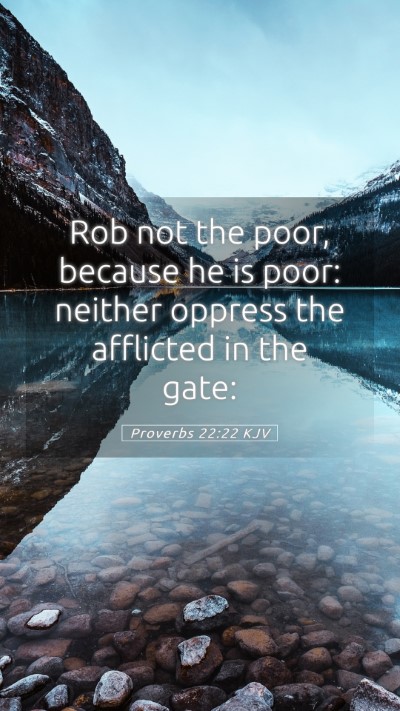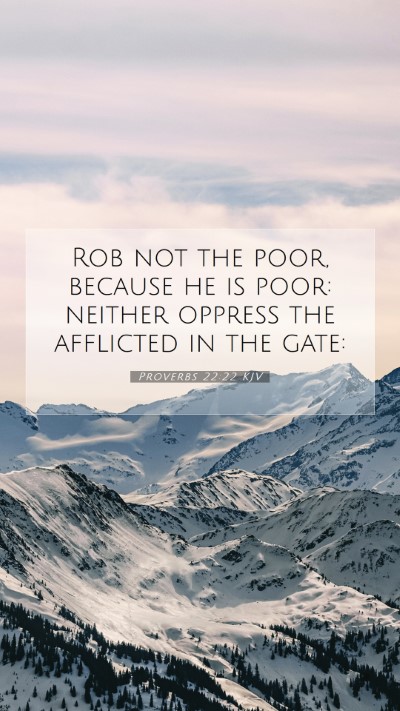Understanding Proverbs 22:22
Proverbs 22:22 states, "Do not rob the poor because he is poor, nor oppress the afflicted at the gate." This verse carries significant meaning and offers profound insights into the ethics and morality of how we treat those who are vulnerable in society.
Bible Verse Meanings
This passage serves as a strong admonition against exploiting those in a weaker position. The phrase "the poor" refers to individuals who are not only financially disadvantaged but are also often marginalized and subject to injustice. The gate is symbolic of a place where decisions regarding justice are made. This highlights the community's responsibility to protect its vulnerable members.
Bible Verse Interpretations
Commentators such as Matthew Henry emphasize the moral obligation to defend those who cannot defend themselves. He notes that poverty makes individuals more susceptible to oppression and injustice. Henry further elaborates on the societal implications of ignoring the plight of the poor, suggesting that neglecting them not only harms the victims but also destabilizes society.
Bible Verse Understanding
Albert Barnes offers additional insights by noting that robbing the poor is doubly heinous due to their inability to protect themselves. He interprets this verse as a call to justice and compassion, urging the reader to reflect on their ethical responsibilities toward those who suffer injustice.
Bible Verse Explanations
Adam Clarke notes that this exhortation seeks not just to avoid physical robbery but extends to many forms of exploitation. He interprets "oppressing the afflicted" as not just a financial action but also includes emotional and social forms of oppression that may occur in our communities.
Scripture Analysis
The context of Proverbs underscores the importance of wisdom in daily interactions. In this verse, the instruction is clear: wisdom calls us to avoid wrongdoing to those less fortunate. This reflects a broader theme throughout Proverbs, where righteousness is lauded, and injustice is condemned.
Biblical Exegesis
Analyzing the Hebrew language, the terms used for "rob" and "oppress" indicate actions that strip individuals of their dignity and rights. The verse serves as an ethical guideline for both personal conduct and communal responsibility, framing a worldview that sees every person as deserving dignity.
Cross References
- Exodus 22:22 - "You shall not afflict any widow or fatherless child."
- James 2:5 - "Listen, my beloved brothers, has not God chosen those who are poor in the world to be rich in faith and heirs of the kingdom?"
- Psalms 82:3 - "Defend the weak and the fatherless; uphold the cause of the poor and the oppressed."
Application to Daily Life
The significance of Proverbs 22:22 extends to our personal ethics, urging us to consider how our actions affect others, particularly those who are vulnerable. It invites us to reflect on the impact of our economic and social choices and to engage in practices that uplift rather than oppress. This is crucial for all individuals seeking to apply biblical teachings in real-world situations.
Conclusion
In summary, Proverbs 22:22 serves as a vital reminder of our ethical responsibilities toward the poor and afflicted. By understanding this scripture and applying its teachings, we can foster compassion and justice within our communities, ultimately living out the core tenets of biblical faith.
Further Study
For those interested in deepening their understanding of this verse, joining bible study groups or engaging in online bible study can provide valuable insights and discussions that help unpack its meaning further.
Recommended Bible Study Tools
- Bible dictionaries and concordances
- Online Bible commentaries
- Bible study guides and lesson plans
Engagement and Reflection
Consider what practical steps you can take to ensure you are not contributing to the oppression of the marginalized. Let this verse guide your actions and conversations as you strive to embody principles of justice and compassion in your daily life.


